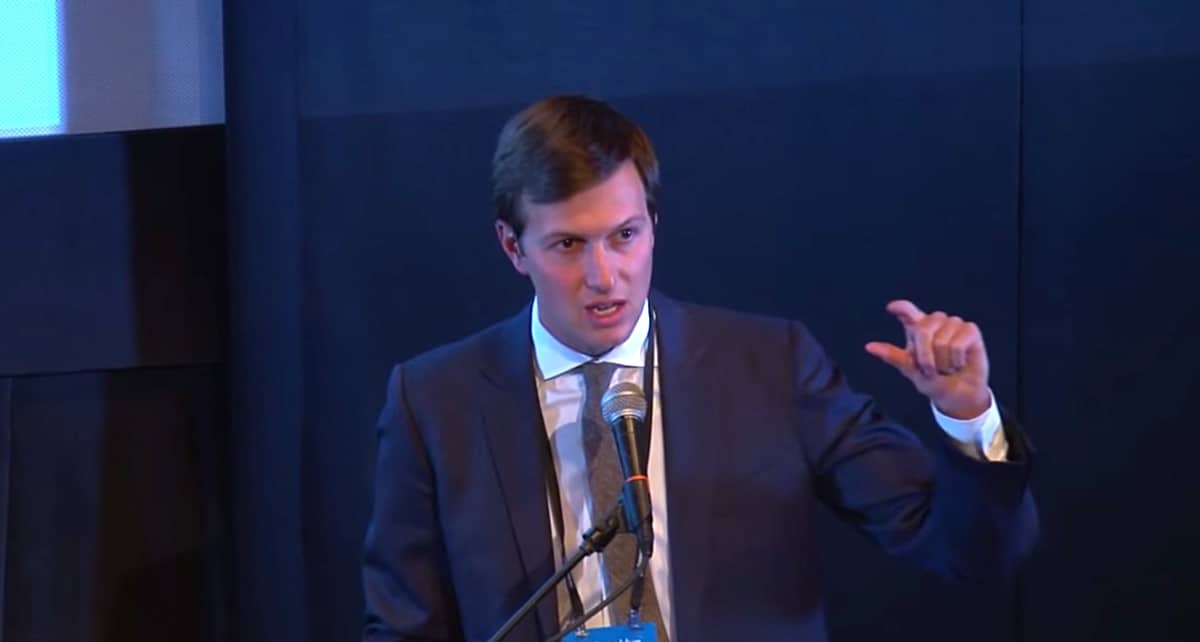Despite federal anti-nepotism laws, Trump appears prepared to name his son-in-law Jared Kushner senior White House adviser to the president, NBC News reports:
“Mr. Kushner is committed to complying with federal ethics laws and we have been consulting with the Office of Government Ethics regarding the steps he would take,” Kushner's lawyer said in a statement.
Kushner will resign from his company, divest “substantial assets,” and recuse himself from matters that would impact his financial interests, Gorelick said. But he may also be challenged on a federal anti-nepotism law aimed at preventing officials from appointing relatives to government positions.
Trump is having his first press conference since the election on Wednesday. Expect the issue to come up.
Wrote Forbes in December:
Jared Kushner is the biggest surprise of the 2016 election,” adds Eric Schmidt, the former CEO of Google, who helped design the Clinton campaign's technology system. “Best I can tell, he actually ran the campaign and did it with essentially no resources.”
No resources at the beginning, perhaps. Underfunded throughout, for sure. But by running the Trump campaign–notably, its secret data operation–like a Silicon Valley startup, Kushner eventually tipped the states that swung the election. And he did so in manner that will change the way future elections will be won and lost. President Obama had unprecedented success in targeting, organizing and motivating voters. But a lot has changed in eight years. Specifically social media. Clinton did borrow from Obama's playbook but also leaned on traditional media. The Trump campaign, meanwhile, delved into message tailoring, sentiment manipulation and machine learning. The traditional campaign is dead, another victim of the unfiltered democracy of the Web–and Kushner, more than anyone not named Donald Trump, killed it.
That achievement, coupled with the personal trust Trump has in him, uniquely positions Kushner to be a power broker of the highest order for at least four years.




